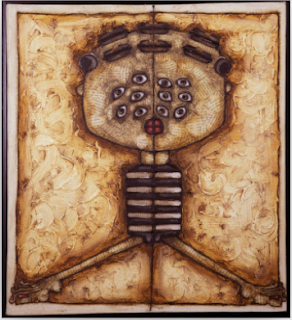The War on Minorities
 |
| American flag on a cannabis leaf Image by Gordon Johnson |
Drug Policy Alliance's video explaining All Drug Decriminalization
I liked this segment because it discussed the history of discriminatory anti-drug laws in the United States. It reminded me that this national problem has been occurring for a long time. I like that the segment gave us an excerpt from Nixon's prior aide, who exposed Nixon's hidden agenda when he declared "The War on Drugs" simply to take down the anti-war protestors and black people (Latino USA). Perez mentions in the segment, at minute 10:24, that "every administration that followed [the Nixon Administration] chose to do the same thing where they overly invested in the enforcement piece, but neglected, and continue to neglect the public health aspect of things" (Latino USA). I liked that the guest speaker is a strong advocate for non-criminalizing ways to address the issue with drugs. I do agree that this war on drugs is a crisis. Something has to be done, and I firmly agree with the speaker that punishment and criminalization of drug addicts is not the answer to this problem. I truly enjoyed listening to this segment. The topic is something that is of great interest to me, controversial as it is. One more thing they could have discussed in this segment is statistics on drug offenses and penalties categorized by race. I think it's important to discuss these statistics given the racial history of the war on drugs and its deliberate target on people of color.
America's solution to the drug crisis stems from systemic racism. The enforcement and criminalization of drugs have historically been discriminatory towards minorities and people of color. People of color are disproportionately affected by America's war on drugs. Rather than criminalizing people for drug offenses, our efforts should be focused on other ways to address these systemic issues. I do think that decriminalization of drugs will have a positive outcome. I agree with Perez that decriminalizing drugs reduces the stigma associated with drug users. Perez mentions from minute 0:13:16 to 0:13:33, "if they are using drugs problematically, they will continue to do so. Instead, we should be focused on ensuring that people who use drugs problematically and want access to treatment have access to treatment" (Latino USA). In Oregon's case, those who wanted to decriminalize possession of small amounts of drugs won the majority vote. Oregon has already created a pivotal change towards drug reform, and I think other states should follow suit very soon. I know some people will disagree with my stance on this political issue, but I stand by what I believe.
Works Cited
"Decriminalizing The War on Drugs." Latino USA, 29 Jan. 2021, Capradio,
www.capradio.org/news/latino-usa. Accessed 2 Sept. 2021.
United States, Congress, House. Anti-Drug Abuse Act of 1986. Library of Congress, 27 Oct. 1986, 99th
Congress, H.R.5484. www.congress.gov/bill/99th-congress/house-bill/5484. Accessed 2 Sept. 2021.
Westervelt, Eric. "Oregon's Pioneering Drug Decriminalization Experiment is Now Facing the Hard Test."
National Public Radio, 18 Jun. 2021, https://www.npr.org/2021/06/18/1007022652/oregons-pioneering
drug-decriminalization-experiment-is-now-facing-the-hard-test. Accessed 2 Sept. 2021.



Hello,
ReplyDeleteT:I think you picked a very good topic to research and write about. I didn't realize how drugs could have such a big effect on one race compared to another.
A:Do you think there would be a way to solve the issue without so much government intervention?
G:I see that you have a picture and a video but I would suggest adding more pictures, I think it helps to visualize it.